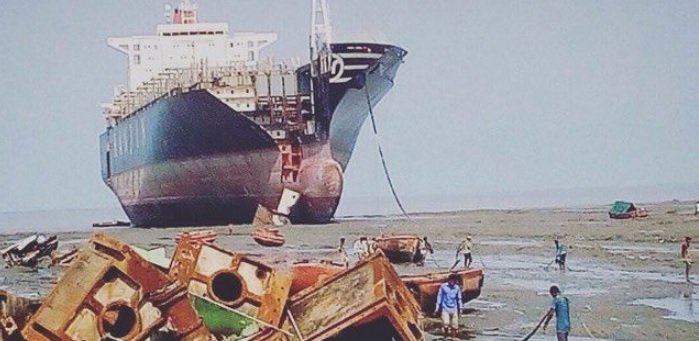Pakistan has approved the establishment of a ship-breaking yard in Gwadar, local media report. Namely, a policy board will decide about the land allocation and the completion of the ship-breaking yard, which would provide many employment opportunities.
Nevertheless, the fate of the Gadani ship breaking yard, the third largest ship demolition yard in Asia, is not ensured.
[smlsubform prepend=”GET THE SAFETY4SEA IN YOUR INBOX!” showname=false emailtxt=”” emailholder=”Enter your email address” showsubmit=true submittxt=”Submit” jsthanks=false thankyou=”Thank you for subscribing to our mailing list”]
The yard has of 132 ship-breaking plots. However, competition from other facilities in Alang and Chittagong have reduced its output. Specifically, today Gadani produces less than one fifth of the scrap it did in the 1980s.
On the other hand a recent reduction in taxes on scrap metal once again increased the at Gadani, which now employs about 6,000 workers.
The Gadani shipbreaking beach has also recently experienced two fire incidents. On 11 October a tanker caught fire, with no injuries reported. However, on 14 October, another oil tanker caught fire, injuring seven workers. These incidents made the Balochistan Environmental Protection Agency ban all shipbreaking activities in Gadani.
Pollutant and dangerous scrapping has been a key area of concern for Pakistani ship recycling industry with no measures for pollution prevention and workers’ health and safety being ‘blatantly ignored’, according to NGO Shipbreaking platform.
Moreover, in its quarterly update, NGO Shipbreaking Platform reported that a total of 113 ships were broken in the Q3 of 2018, and 79 of these ships were sold to the beaches of South Asia for dirty and dangerous breaking.
Meanwhile, between July and September, three workers have lost their lives in shipbreaking in Alang, India. So far this year, Platform sources have recorded 24 deaths and 9 injuries in South Asia.




























































